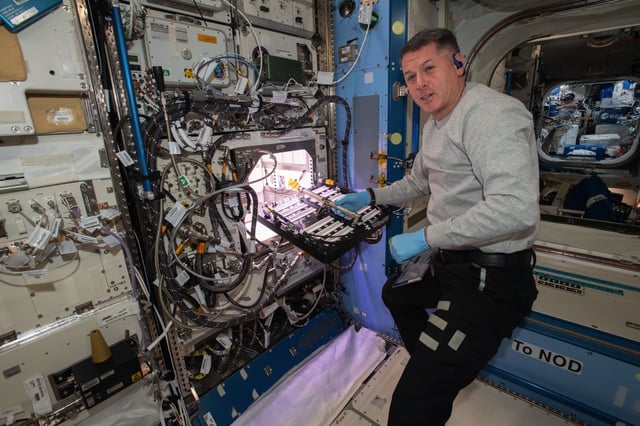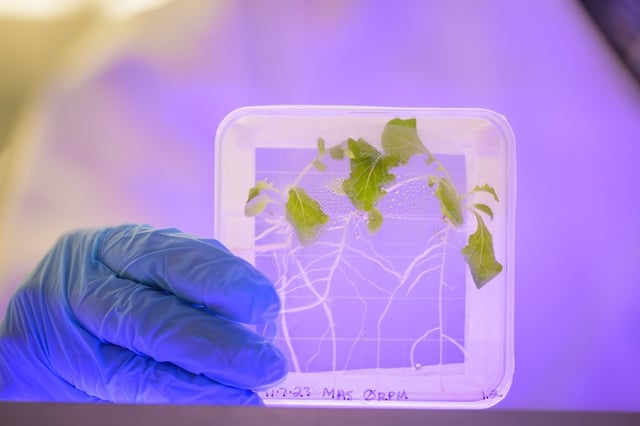Overview
- Recent research suggests that plants grown in space, such as lettuce, are more susceptible to bacterial infections, particularly Salmonella, due to the microgravity environment.
- The plants' stomata, tiny pores that usually close to protect against threats like bacteria, remain open in microgravity conditions, making them more vulnerable.
- Researchers used a device called a clinostat to simulate microgravity conditions, confusing the plants' response to gravity and making them more prone to infection.
- A beneficial bacterium known as UD1022, which usually helps protect plants, failed to safeguard the plants under these space-like conditions.
- Scientists are now considering sterilizing seeds and genetically modifying plants to help them cope in the microgravity of space.

